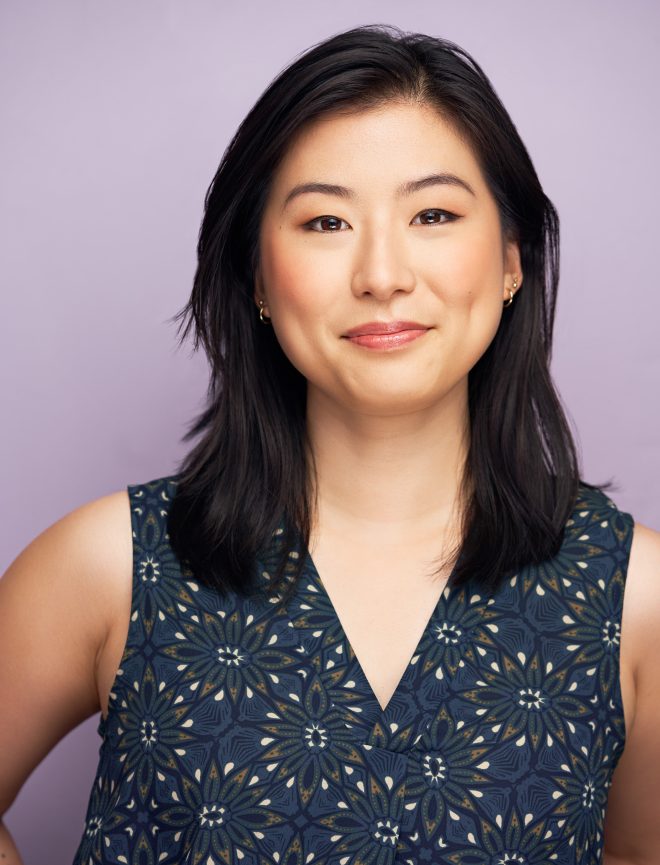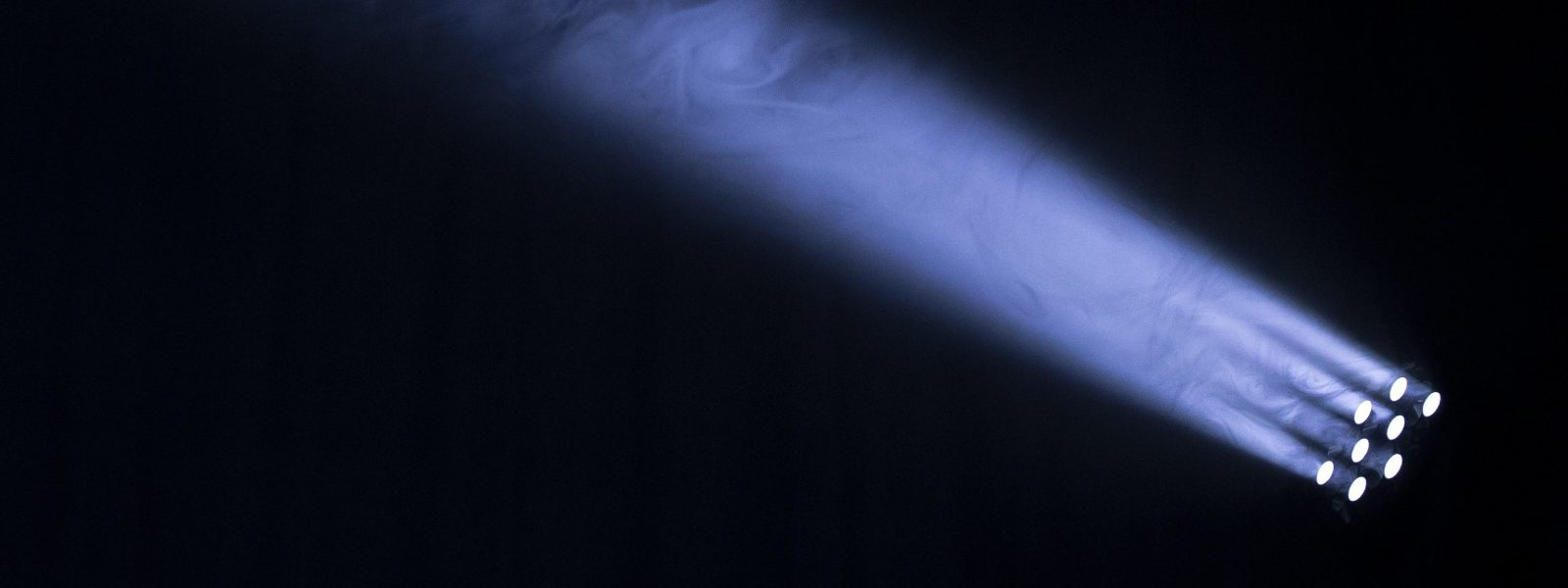Cast of Wonders 632: Tongue is a Void
Tongue is a Void
by P H Low
enter
Late at night, driving: highway lane lines spooled like cream beneath your high beams, fields of corn and hay undulating soft beneath pinprick stars. The last gas station has faded behind you; ahead, only mile markers, a firefly flicker in the velvet dark.
The echo of your father’s voice, thick with disappointment: I thought you loved musical theater.
And you do, you want to cry out—you dropped out of conservatory for this, love it with every atom of the wreckage that is your body—but when you light yourself on fire every night before a thousand pairs of watching eyes, there is only so long you can last before the wick burns low.
An indrawn breath from the backseat, a brush of shadow like feathers, but when you turn around, you only see the dark.
enter
Your hands tight on the steering wheel, your head pounding. Stagelight glow still fading from your skin, and you love the way your chest opens up, love the spell your voice weaves over the rapturous sea of faces, but the aftermath hits you like an oncoming truck—grey haze behind your forehead, your eyes frozen halfway between open and shut. Eight times a week and the incandescence haunts your dreams, and you will shoot awake at five in the morning, breath coming hard and fast, just to realize you haven’t yet missed your cue.
You tongue the burgeoning rawness at the back of your throat, the spitless fuzz on your teeth. You remember that your parents endured more than this; that the reason you are not waiting tables or desperately grasping for freelance remote work between auditions is because they hurled themselves wholesale into this country, staked themselves in its tainted dirt by doing things they did not want to do.
You are lucky, you tell yourself, as you rub at your aching temples. To be so selfish, and still complain. Keep going.
Behind your head: a penumbral clench, a sub-bass hum. Waiting.
enter
Hollow eyes, highway, four hours of sleep. You’ve begun to resent the way you’re only lucid for a thin slice of each day—just long enough to take your bows before you stagger into the green room and stare into space, your knees weak with the relief that you didn’t fuck up today; just long enough that when your co-star comes in, you grudgingly make the hand signal you’ve agreed upon—I need a minute—and he closes the door quietly behind him. You’ve begun to resent the way you stumble over your words when the other cast members ask you simple questions; the snickers and rolled eyes when they think your back is turned. And you would not change who you are—would not dial down how much you care for these bold shining lights; for this role you play, night after night, of a fallen witch wandering the realm between the living and the dead—but damn you’re tired, and you were going to start writing songs again, something of your own that the contracts and audition cycles and tepid ticket sales cannot take away, but at the end of each night, you barely have the energy to shower and collapse into bed.
A prickle at the nape of your neck, an acuteness like watching.
And then a voice, like grinding stones: I can give you what you want.
You hear it half with your ears, half in your head. And your parents have warned you—of the reason they fled the war zone that was their old country, the reason they do not drive on empty roads at night when their blood is singing with anger or desperation. But you cannot have imagined a sound like this. It is the silence between the pull of a trigger and the bullet’s retort, it is the hiss of a thousand struck matches. It is the slow smile of a pale foreigner in a suit, promising succor.
“You don’t know what I want,” you say aloud. Then, in the bare rudiments of the language your parents have taught you, you add, “Go away.”
A shift, cold breath against your cheek, and you sense the presence draining from the backseat like sand.
enter
Midnight: full moon, ninety down the empty road. Static beneath your skin, your breath hitched on the edge of a sob, and the memory of those glaring lights rings in your head: your words gone, your mouth an empty room, a thousand expectant gazes curdling slowly into unease. I hear we have a Times critic tonight, your director had said, an edge to her smile— this review the difference between boosting and tanking the show’s already lukewarm sales—and now she’s making frantic hand motions at you from her box behind the stage, the pit orchestra drawing your cue note into a long low hum, and your co-star raises a brow and you don’t remember you can’t—
Swaying on your feet. Blinking, slow. The smell of your hairspray clogs your throat, and there is a pounding behind your eyes, static rolled through your lungs like a storm, and you have never broken like this, not in public— have never just stood there with your knees locked and mouth opening and closing like a fish and your chest aching with the weight of expectation, your vision splintering like glass and you don’t—
don’t
don’t
When the dark stranger materializes beside you in the passenger seat, you barely flinch.
“What do you want?” you say flatly.
I want to offer you a deal.
Your deal has already been made, you think. You have been given a chance and shattered it to pieces, and the ruin is almost a relief. “I don’t need a deal.”
Everyone needs something. His eyes glint green in the dark. Everyone has a reason they’re still alive. Then he extends a hand, pale and long- fingered and slow. At least allow me to show you?
And because there is a scream still locked between your teeth— because the inside of your skull is bruise-tender and there is no such thing, anymore, as consequences—you take it.
And your life, it splits open into light.
Your mother, cooing as you gurgle at her, a happy baby. Your elementary school classmates’ smiles not hardening as you bow on stage, because there is no dissonance between the bubbly girl in the script and the person you are away from it. Your college musical theater troupe, but after the drinks and the socializing, you don’t need to curl up in the corner of your bed and wrap the blankets tight around your body, emptied out for the entire next day until it is time to perform again.
You are okay, and you are loved, and you are fluent in every social context you could ever dream of entering.
And you are not you.
“I don’t want that,” you say, and your voice is too loud against the echo chamber that is your windshield. “I don’t want a different life.”
You cannot imagine it, the stranger counters. That is not the same thing.
“No.” You say it in the old language, and the stranger flinches, though he takes great pains to hide it. His pale hands settle back on the armrests, as if accustomed to a throne.
What about this, then, he says, and your hands jerk on the steering wheel—the headlights of a van blazing toward you from the opposite lane, its high final horn the last chorus you will ever hear, and you swerve back to your lane, sweat breaking cold across your forehead. You realize he didn’t need to touch you, the first time. I can give you the courage.
And in the valley of your silence, he adds, it would look like an accident, if you wanted.
You swallow. Your heart is beating high in your throat, the seat belt too tight against your chest. You always end up here. You’re so tired of ending up here.
Then, disgusted, you think: and he’s the only one who knows.
“Get out,” you say—low, deadly. You have played plenty of antagonists, despite your age—something about your face, perhaps, or the way you were always too quick to reach into the dark. “Get out. Now.”
You don’t have to pretend, he says softly. Not in front of me.
“Get out,” you roar in the old tongue, and then you begin one of the ancient chants, the kind your parents fled their country to leave behind, and the stranger struggles, writhes, his face contorting in a rage that will be carved into your dreams in the years to come. But you are not afraid—it is you who is the villain, now—and when you have spat the last word of the incantation, he dissolves in a whirl of shadow and ash and you find yourself parked on the side of the road, coughing and retching and so, so alone.
You check the backseat and the trunk, just in case. Shine your phone light into the fuel tank. There is a grey numbness between your temples, a give to your knees as if you’ve had too much to drink. No words left inside you—only a fine soot on your fingers where you touch the car’s exterior, the miles of black ribbon road still left for you to drive.
You crawl back into the driver’s seat, lay your head on the steering wheel. Close your eyes.
You are lucky, you think as another car roars past, its headlights flaring across your ash-stained windshield. You are lucky. Keep going.
You’re almost home.
About the Author
P H Low
P. H. Low is a Rhysling- and Locus-nominated Malaysian American writer and poet whose debut novel, These Deathless Shores, was published by Orbit Books (US) and Angry Robot (UK). Their shorter work has appeared in Strange Horizons, Reactor, Fantasy Magazine, and Diabolical Plots, among others. Low is an alum of Viable Paradise 2019 and Pitch Wars, and can be found online at ph-low.com and @_lowpH on social media.
About the Narrator
Rebecca Wei Hsieh

Rebecca Wei Hsieh (she/her) is a NYC-based Taiwanese American actor and writer who feels awkward writing about herself in the third person. Her acting work encompasses voiceover, stage and screen. Her writing has been featured in outlets like We Need Diverse Books and Wear Your Voice Magazine. She has a BA in theatre and Italian studies from Wesleyan University, and is currently co-writing a memoir about Tibet. Her website is rwhsieh.com and you can find her on social media @GeneralAsian



